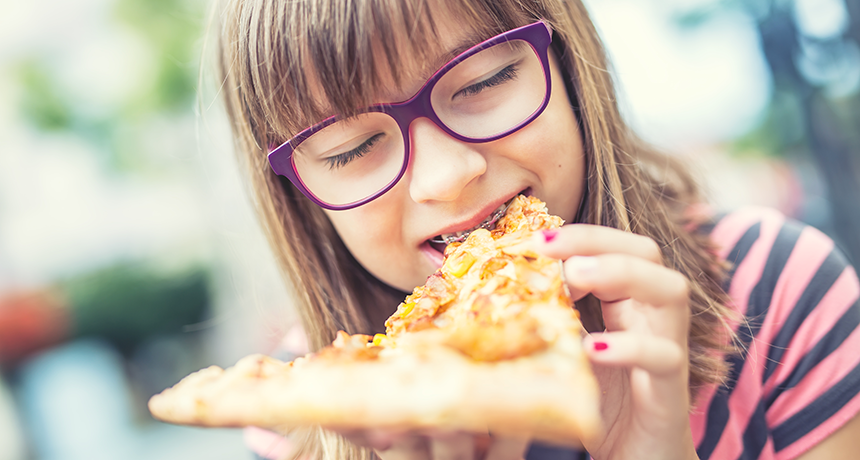Questions for ‘Taste good? Senses inform the brain — but don’t tell everyone the same thing’

All our senses inform what we taste.
MarianVejcik/iStockphoto
To accompany feature “Taste good? Senses inform the brain — but don’t tell everyone the same thing”
SCIENCE
Before Reading:
1. What is a food that you like? Have you always liked it, or did your preference for it change as you grew?
2. Imagine taking a bite of a warm, gooey slice of pizza, dripping with cheese — delicious! Now imagine eating that pizza blindfolded, with your nose pinched closed. Do you think it would taste any different? Why might that be?
During Reading:
1. What is synesthesia? Describe at least three forms that it can take in different people.
2. How do our different senses — taste, smell, hearing, touch and sight — “talk” to one another?
3. How did the taste of different foods help our ancestors survive? Give three examples from the story.
4. What has Julie Mennella learned about how people’s taste preferences develop?
5. What method does Danielle Reed use to study how genetics affect taste preferences? Why is it important to understand these effects?
6. What are taste receptors, and how can they differ?
7. What is the difference between taste and flavor, according to the story?
8. What method does Dana Small use to understand how people’s brains respond to different food cues? What has she learned?
9. Why does Timothy McClintock want to learn which olfactory receptors are linked to which smells?
10. How does this research relate to patients who undergo chemotherapy?
After Reading:
1. Does anyone you know have synesthesia? If so, how do they experience the world differently from most people?
2. Our ancestors’ survival depended on their ability to pick up on cues that foods’ tastes provided, such as that sweet foods were calorie-rich. Drawing from what you read in the story, describe three ways in which taste might still influence people’s health today?
3. Clearly, the brain affects how people perceive food. Sometimes connections in the brain may get scrambled. Consider some of the brain impacts on flavor and appetite, as described in the story, and highlight ways in which this could impact appetite — enhancing or diminishing it.